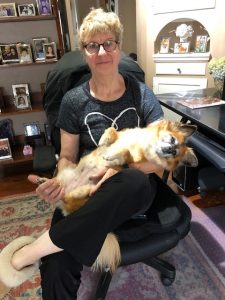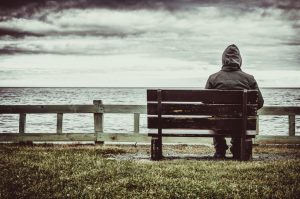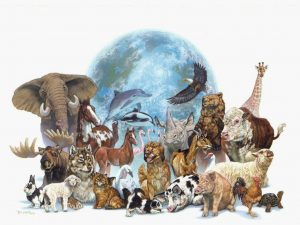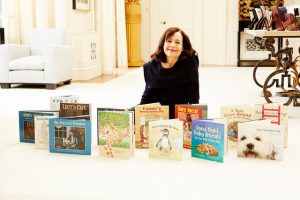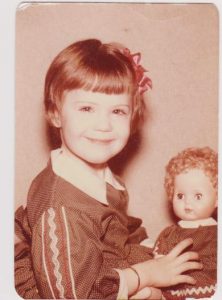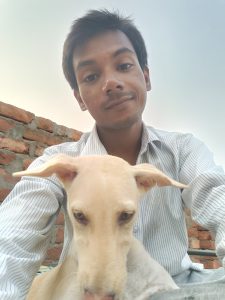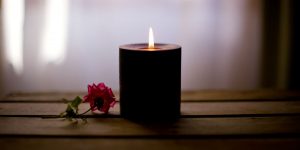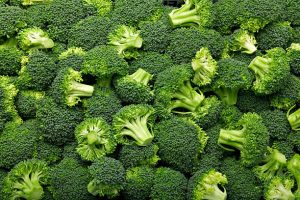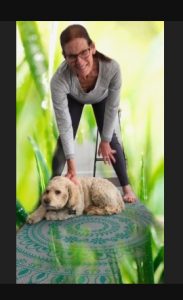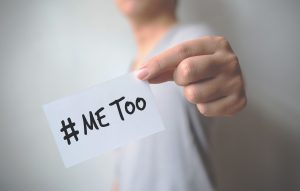
When I was young, I often went out on the boat with my dad. He liked to fish, and I enjoyed being with him. I adored the chill of the early morning air and the sunlight dancing on the water. I was in awe of my dad’s skill as he took aim, casting the lure between the branches of a long-dead tree, now partly submerged in the water near shore.
To reach the magical spot I enjoyed, we first had to cross a big lake. My father made certain my life jacket was on tight. Then he pushed the boat away from the dock. Once we were safely clear, he put the motor in high gear and we were off, speeding toward our destination.
I did not enjoy facing into the strong wind created by the high speed. Holding on tight, I looked backward, observing the effect the boat had on the water as we raced over the calm surface. Spray shot up over the bow, wetting us. Buoys jerked up and down as we sped by. A flock of ducks quickly took flight, their tranquil morning disturbed by our waves. When we were closer to land, our boat’s wake crashed hard against the shore.
After what seemed an eternity, we arrived. My dad slowed the boat down and turned the noisy, smelly, water-churning engine off. He moved up front to an electric trolling motor that silently propelled us the rest of the way, leaving only a small ripple as evidence of our passing.
As we moved slowly, without upsetting the wildlife, I delighted when dragonflies landed on the boat. Fish swam close by, undisturbed by our presence. Once, a bird came and sat for a brief moment on the steering wheel.
When it came time to head back, I became disappointed. Too soon we were off again, zooming across the lake, our wake disturbing the water and everything on it as we went by.
Many years later, during an especially hard period, it dawned on me: I am like a boat. I too leave a wake as I travel through life. Today, I choose to move at a slower, more purposeful pace, although I have not always selected the right speed and direction—in the form of responsible behavior—that represented me well to myself and the world.
There was a time when I behaved as a fast boat, churning up waves of drama and chaos that crashed hard over me and others. Many of the people I knew in that “former life” will confirm it. When I wrote a check that bounced, my embarrassment caused me to take out my frustration on the mean old bank. Running late, I aggressively honked at the cars in front of me or became impatient with pedestrians crossing the street. When I had loud parties, I ignored the impact on my neighbors. The plastic cup I carelessly threw in the gutter became part of a swirling mass of trash in the Pacific Ocean. Lying caused people to distrust me.
Over the course of my life there have been many times I did not care about the wake my behavior created. The truth is that although I may live in a free country, I am not entitled to behave as I please! I am not free to do what I want without regard to the consequences of my actions. Action without accountability is not free. There are always consequences!
The more I allowed myself to push the boundaries of what is morally, ethically, and socially acceptable, the higher the level of negative payback I received. It was eventual and inevitable.
Extensive personal freedom requires me to operate at the highest levels of personal integrity. Doing so maintains my positive advantage within systems that often allow and encourage pushing acceptable boundaries to intolerable and ridiculous extremes. The notion it is suitable to act without caring about short- and long-term consequences is completely egotistical, motivated by the impatience, immaturity, and thoughtlessness of my self-centered ego.
Even though my name is Regina Victoria, I am not in line to any throne, or entitled to special privileges. What I receive in life—respect, good relationships, financial stability, academic success, and a good job—I am responsible for earning. A peaceful, joyful, and fulfilled life does not just magically appear. I must create it.
My actions create my life, and I want the best life. How I allow myself to behave is the true indicator of how much I care for and respect myself.
Yes, there was a time when I did not have the level of awareness necessary to recognize how my actions impacted other living beings. Today I realize caring about the wake I leave is what makes me feel fantastic about me. The gratification I receive from working hard to do the best thing for all concerned is more satisfying than another person’s praise. Assuming accountability for my behavior results in my loving and respecting myself.
At the end of each day, as the last thoughts filter through before sleep, we want to remember we did our best to be a representative of the finest humanity has to offer. Today we want to remember we made the world a better place for our being alive. Today we want to remember we were appreciative of the gift of life.
In gratitude for the gift of each day, we lead with our heart to create a living legacy of which we are proud. There is nothing naïve, submissive, or weak about supporting the ascendancy of our peaceful, courteous, patient, and responsible heart. True power is choosing to stop rushing through life without paying attention to our actions. Real courage is slowing down to keep our heart open to care about the wake we leave.
Enjoy life at a slower, more aware, and peaceful pace. Create a living legacy of which you are proud and for which you will be admirably remembered. You will positively impact other people and living things, which is a fine bonus, like getting toppings on the most delicious ice cream sundae of life for free.

